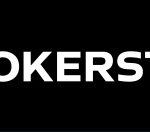iGaming Talks welcomes Alexandre Tomic, the founder of Alea – true pioneer of the iGaming sector. In this interview, he discusses what first drew him to gaming, why the industry remains endlessly fascinating, and how Alea continues to innovate with new solutions.
TheGamblest: Alexandre, first of all, thank you for your participation! You have been a pioneer in the online gaming industry for decades. We would like to know what originally drew you to this industry, and what still excites you about it today?
Alexandre: Thank you, it’s always a pleasure to share.
When I entered this industry in 2004, it was not out of some grand plan. I was young, eager to make a living, and was introduced by my mentor Henri Ettriliard to the world of online gaming as a white-label operator for the French company B3W. That was the beginning.
But what matters more is why, twenty years later, I’m still here. The truth is, this industry is uniquely fascinating. Gambling is the only process where the boundaries between play and reality blur through money. You take something from real life into the game, and you come back with the consequences — whether that’s loss or victory. It makes the entire experience deeply human and deeply compelling.
I’ve also learned over time that predicting what will work is nearly impossible. Look at Fortune Tiger by PG Soft. Who would have thought that this Chinese game would become the biggest game in Brazil, surpassing anything from Evolution or Pragmatic?
What keeps me excited today is the complexity beneath the surface. At Alea, we work with 160 studios and over 16,000 games, and every week the landscape shifts: new studios emerge, others disappear, and fresh challenges arise. Something as fundamental as an API, which at first seems simple, actually sits at the very heart of gaming operations. APIs govern money in and money out, and if they’re not built correctly, they can make or break an operator.
So, what excites me most is solving those challenges and learning from them day by day. Protecting operators who entrust us with their core operations, anticipating risks, and innovating around problems that didn’t even exist five years ago. We have hackers finding vulnerabilities we never imagined, new markets with completely different player behaviors. This industry never allows complacency. Just when you think you’ve mastered it, it forces you to learn again. That’s what has kept me here for two decades, and why I’m still as passionate today as when I first started.
TheGamblest: What is the story behind Alea? Present the company to someone who has never heard of it – what is the company’s goal and what are the core values you would like to mention?
Alexandre: We started in 2012. We had a casino called Slots Million and were operating on MGA, UKGC, and SGAA markets. And like every operator, we had this massive problem: we were speaking 50 different languages. All these software providers and most were not good at building APIs.
To solve this, we built our own internal aggregator. It quickly became clear that while chat tools and payment gateways can be built for many industries, a game aggregator is uniquely central to iGaming. It requires deep technical expertise because games are ruled by APIs, and operators shoulder the responsibility when integrations go wrong. Add to this the rise of cybersecurity threats, and the need for a reliable, secure, and protective aggregation solution became undeniable.
That’s where Alea stands apart. Our core value is protection. We protect operators from flawed integrations, from unreliable providers, and from vulnerabilities that could cost them dearly. When a provider tells us they’re ready to go live without retries or rollbacks, we say no, because our duty is first and foremost to safeguard our clients.
At its heart, Alea is about solving the hardest problems in gaming aggregation, building genuine partnerships based on trust, and ensuring operators can focus on their growth while we protect the foundations of their business.
Because at the end of the day, you didn’t build your payment gateway, so why would you build your gaming gateway? Work with specialists who understand that this is the core of your gaming operations and partners who will be there throughout your journey.
TheGamblest: You recently launched Alea Pay. How does it align with your long-term vision, and what makes it different?
Alexandre: From day one, our goal has been to create not just a product, but a secure ecosystem where our clients can operate with confidence. With aggregation, we proved that we could solve one of the biggest challenges in iGaming: building a reliable, scalable, and secure infrastructure.
Payments, in many ways, are a natural step in our long-term vision, and the other biggest pain point for most of our clients. They’re delicate, they’re costly, and they often bleed money if not handled well. So for us, launching Alea Pay was about completing that circle and giving our clients the same peace of mind we’ve delivered on the game aggregation side.
What makes Alea Pay different is that it was born from real demand and real experience. As former operators ourselves, we know just how painful it can be. We didn’t approach this as “let’s create a new revenue stream,” but as “how do we solve one of the hardest challenges our partners face?” The result is a secure, modular, and flexible solution that works no matter the market, the volume, or the platform. It’s designed to adapt around the client, not the other way around.
And that’s why it matters strategically: Alea Pay confirms that we are not just a leading aggregator, but a true partner building an ecosystem of services that covers every critical aspect of running a casino. The first clients already onboarded are seeing great results, which only reinforces our belief that Alea Pay is a solution built by people who actually understand iGaming.
TheGamblest: Alea has also introduced a new, redesigned version of its Client Area. What kind of operational improvements can partners expect to see?
Alexandre: The redesigned Client Area is the result of months of work led by my co-founder, Charlotte Lecomte. We approached it with a simple philosophy: functionality first. Software should not just look elegant; it should solve real problems.
We spent months watching our clients use the old interface, and we noticed Operators managing multiple brands had to repeat the same configuration over and over again.
We challenged ourselves with a simple question: how could we elevate the Client Area to anticipate the needs of tomorrow, not just respond to today? Because when you’re managing over 16,000 games across multiple casinos, efficiency is not optional; it’s critical.
Now operators can personalize everything, time zones, themes, and data formats, to match how their teams work. You can filter games by contract or brand, run bulk actions, and configure RTPs across multiple casinos with one click. These sound like small things, but when you’re doing this 50 times a day, it adds up to hours saved.
We also completely redesigned the game calendar, and this is far more important than you might think. In iGaming, timing is everything and releasing a game at the right moment has a direct impact on revenue. With our new calendar, operators can plan launches daily, weekly, or monthly, ensuring they never miss a release. More importantly, it gives them the chance to market new games ahead of competitors, which not only strengthens their positioning but also helps them attract new players and increase revenues. What might seem like a small change in the interface actually delivers a huge competitive edge and has a tangible impact on our clients’ performance.
The feedback so far has been excellent, but we see this as just the beginning. Charlotte and the team are already working on the next iteration, anticipating the needs operators will face six or twelve months from now. For us, the Client Area should be invisible, intuitive, fast, and efficient, empowering operators without ever slowing them down.
That’s always been our approach: solve the problems that are already there, and the ones that haven’t surfaced yet.
TheGamblest: There’s growing concern about data centralization. As Alea manages both operations and payments, how do you ensure ethical data use?
Alexandre: This is something that we’ve been clear about from the very beginning. At Alea, whether with aggregation or now with payments, our role is to be a service provider: a partner who solves pain points for operators. Data is, of course, crucial in our industry, but it’s equally important to clarify how we use it and, more importantly, how we don’t.
The casinos are and will always remain the sole owners of player data. We are not interested in personal player details, and we never will be. That’s simply not our scope.
What we do is very different: we look at trends, performance, and patterns. We analyze which games perform best, how providers compare, what resonates in specific markets, and how player preferences evolve over time. This allows us to recommend the right content mix for each operator, aligned with their strategy and their audience. It’s why we call ourselves a Data-Driven Game Aggregator: we bring value by turning performance data into actionable insights, without ever needing to touch personal information.
In short, our commitment is clear: data is used to empower our clients, never to compromise their players. And that will never change.
TheGamblest: Approximately a week ago, you revealed the forth episode of your podcast Under Pressure. What inspired you to launch it, and what do you hope it brings to the industry?
Alexandre: I started this because in 2020, I thought it was a good idea, and no one was doing B2B podcasts in the industry, but then business and life happened. Fast forward 5 years, and everyone is doing a podcast, whether people want to listen or not.
I could have just given up. But with moving away from Alea from CEO to Founder, I finally had the time to get this done properly.
I’ve known some incredible builders in this industry for years – David Natroshvili, Alex Pratt, and Eman Pulis. Real friends and connections. And over the years, I’ve heard their actual stories. Not the sanitized conference version, but the full story of how they really built what they built.
Take David from Spribe. This guy pitched Aviator with just an iPad at ICE London. Everyone rejected him. Now Aviator processes 14 billion euros in wagers per month, 350,000 bets per minute. But the story of how he got there? The decisions he made when no one would give him the time of day? Now that’s what’s fascinating.
Same with Alex Pratt. Police raids, business models collapsing, but he always found a way forward. How do you think clearly when everything’s falling apart? That’s not taught in business school.
And Eman. This guy was 16k in debt, bailiffs at the door, partner overdosed and dead. Now look at SiGMA. But the path between those two points? It’s messy.
The hyperbaric chamber creates this environment where we can have honest conversations. You are literally under pressure, but safe in an environment that’s good for your health. It’s funny, we spend so much time in this industry talking about pressure, but we never actually put ourselves under real pressure to have real conversations.
And here’s what I’ve learned: success isn’t linear. It’s messy.. The next generation needs to see that.
TheGamblest: Many founders struggle with the shift from “doing” to “leading.” What helped you make that transition?
Alexandre: In the early years, I was involved in everything. I remember a key opportunity with a major operator who needed an answer within 24 hours. Jordi Sendra, my then-COO, had the deal prepared, the technical team had the solution ready, but everyone was waiting for my sign-off. At the time, I was in Malta giving a keynote at SiGMA. By the time I came off stage and reviewed the proposal, the operator had already chosen a competitor.
That was a turning point for me. As a founder, letting go feels counterintuitive. You’ve built the business with your own hands, and trusting others to make decisions feels like a risk. The fear is always: what if they make the wrong call? What if they don’t fully understand the vision?
But here’s what I learned from all my biohacking experiments: optimization isn’t about doing everything yourself. It’s about understanding where you add value.
Bringing in Jordi as CEO was the best decision I’ve made. He challenges me and changes my perspectives on subjects I thought I knew. And now I can focus on the things that actually energize me: the vision, the technology, and understanding what operators really need.
And beyond Alea, it gives me the space to explore projects in psychedelic research and artificial intelligence. The company doesn’t need me micromanaging; it needs me thinking.
TheGamblest: What’s your personal definition of leadership, and how has it evolved?
Alexandre: My definition of leadership has evolved completely, and I had to learn some hard lessons to get there.
For me, true leadership begins with protection. Protecting good people from toxic influences.
I learned this the hard way. Early on, we had people who looked amazing on paper: incredible track records, great networks, producing results. Head of sales, 20 years of experience, crazy track record. But beneath the surface, they were poisonous. They were nice to me, nice to the C-level, but went down to the basement, and they were toxic. People leaving, morale destroyed, entire teams falling apart.
So now, leadership for me starts with protection. Protecting the good people from the psychopaths. Because psychopaths, and we have an epidemic of them in this industry, they’re so charming, so agreeable, and they destroy everything from the inside.
That experience reshaped my entire philosophy. Leadership, to me, is about building an environment where kind, capable people can consistently excel. And to do that, you must be absolutely ruthless about culture. You have to identify and remove the individuals who undermine it, no matter how “valuable” they may appear. Because culture is everything.
I’ve learned that employees are more important than customers. I’ve even said this publicly at industry events. Because if you don’t take care of your people, you’ll never be able to take care of your clients.
So today, my leadership philosophy is simple: hire kind people, protect them from toxic people, give them the tools and trust to succeed, and then step out of their way. It may sound “soft,” but in reality, it’s the hardest part of leadership, and the one that defines a company’s future.
TheGamblest: Our readers know your impact in the iGaming space. But what about outside of work? If you weren’t in gaming, what would you be doing?
Alexandre: Outside of iGaming, I’ve developed deep passions that are very much connected to human performance, resilience, and well-being.
The Under Pressure podcast is one of them. Sitting in a hyperbaric chamber with industry leaders and uncovering their real stories of how they built their companies under immense pressure, is something I’ve truly fallen in love with.
I’m deeply invested in human optimization. At Alea, we’ve dedicated over 2 million to our office wellness infrastructure, and on a personal level, I’m constantly experimenting on myself. Fasting for weeks, supplementation, advanced tracking devices. People think I’m crazy, but the data doesn’t lie.
Another area that excites me is psychedelic research, particularly in relation to gambling addiction and trauma therapy. We’re actively supporting studies that involve war veterans and individuals struggling with addiction, and the results so far are revolutionary. It’s an area where I believe our industry can contribute to genuine breakthroughs.
And AI… I spend hours talking about AI. While much of the world focuses on job displacement, I’m fascinated by the bigger question: are we witnessing the next stage of human consciousness?
If I weren’t in igaming, I’d likely be combining all of these interests: interviewing high performers, advancing research in optimization and consciousness, and challenging how we understand human potential. Because at the end of the day, business performance, physical and mental health, and spiritual growth are all interconnected.
I’m no longer interested in just building businesses for the sake of revenue. My focus now is on understanding how we become better humans, and creating the tools, spaces, and conversations that make that possible.








